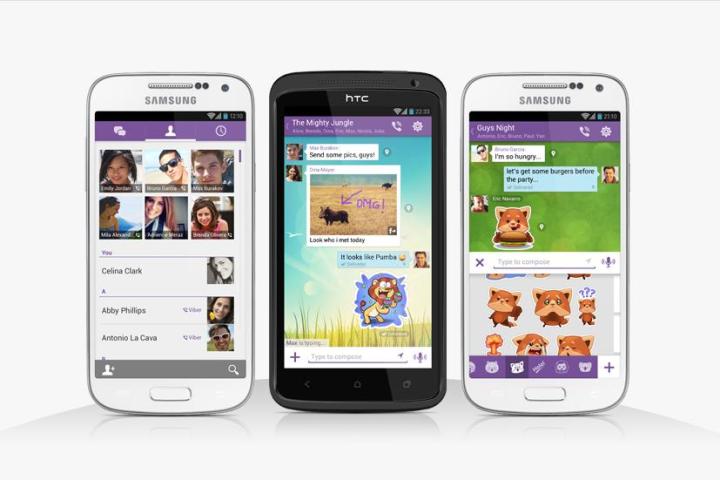
Competition in the instant messaging space stepped up a gear last month with two significant acquisitions. First, one you might not have heard about – Rakuten’s buyout of Viber for $900 million. And then, a few days later, one you definitely heard about – Facebook’s purchase of WhatsApp for an eye-popping $19 billion.
Japanese e-commerce giant Rakuten said Viber, with its 280 million users (100 million active monthly) across 200 countries, would help it penetrate new markets around the world.
Two billion users?
In an interview with Bloomberg published Thursday, Rakuten boss Hiroshi Mikitani spoke for the first time about his hopes for Viber, explaining he wants to see its user base grow to a whopping great two billion. That’s twice as many as what Mark Zuckerberg has planned for WhatsApp.
Before you start spinning your index finger by the side of your head, let’s take a closer look at the figures. According to the Rakuten boss, Viber is currently adding 600,000 new users daily, up from around 550,000 when the deal was announced. And as previously noted, it already has 300 million users signed up.
“The goal is to reach one billion, two billion users, not to stop yet,” Mikitani told Bloomberg. “We’re planning to increase to one million additional users every day. That means 365 million a year.” He said he thinks the messaging app can hit his million-a-day target “maybe in two or three more years.”
While it’s not impossible to imagine Viber at some point hitting a million sign-ups a day – WhatsApp claimed to have achieved this figure recently – maintaining that kind of growth over a significant period of time is the biggest challenge. Not to say it won’t give Mark Zuckerberg’s new acquisition a run for its money, though.
Lofty goal
Rakuten’s CEO said more mergers and acquisitions may be required to reach his lofty goal, suggesting the buyout of rival offerings or app developers whose games and services can be incorporated into Viber, or even the inclusion of more e-commerce features to attract new users.
Mikitani called Viber “one of the most important projects” for the company at this point in time.
Besides its huge e-commerce site, Rakuten currently runs a large number of other businesses in Japan, including financial and travel services. However, in a bid to increase its presence outside of the Asian nation, the company has in recent years acquired the likes of Canadian e-reader outfit Kobo and Singapore-based video-streaming service Viki, as well as Spanish video site Wuaki.tv. The Viber purchase is further evidence of this long-term strategy to expand its operations globally.
The instant messaging space is hotter than ever right now, with another Japan giant, SoftBank, reportedly looking to buy a stake in fast-growing Line, Bloomberg reported.
Viber is a cross-platform app that allows users to send free text messages, photo messages, video messages, and make Skype-like calls, and also includes additional features such as stickers and emoticons.
Editors' Recommendations
- WhatsApp finally lets you edit sent messages. Here’s how to do it
- Here’s why Telegram will probably never beat WhatsApp


